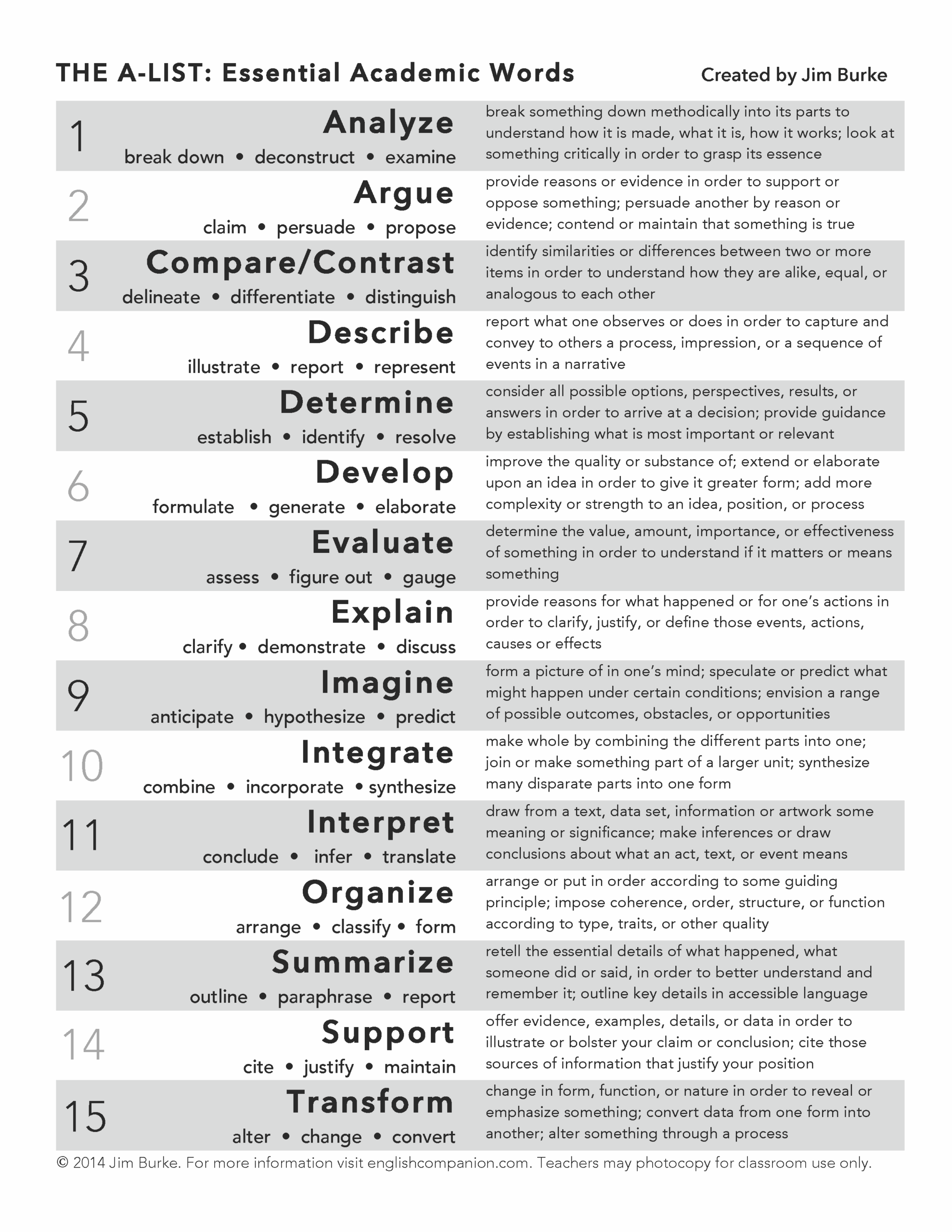Academic vocabulary refers to the words that are commonly used in academic settings such as schools, colleges, and universities. These words are essential for students to understand and use in order to succeed in their academic studies. Proficiency in academic vocabulary can help students improve their reading comprehension, writing skills, and overall academic performance.
Having a strong grasp of academic vocabulary is crucial for students to effectively communicate their ideas and thoughts in a scholarly manner. By incorporating academic vocabulary into their writing and speaking, students can demonstrate their understanding of complex concepts and demonstrate their critical thinking skills.
Examples of Academic Vocabulary
1. Hypothesis – a proposed explanation for a phenomenon that can be tested through research and experimentation.
2. Synthesis – the act of combining different ideas, concepts, or information to create a new understanding or perspective.
3. Analysis – the process of examining something in detail to understand its components, structure, and function.
4. Citation – a reference to a source of information used to support an argument or claim in academic writing.
5. Paradigm – a set of beliefs, values, and assumptions that define a particular scientific or philosophical perspective.
6. Empirical – based on observation, experience, or evidence rather than theory or speculation.
7. Rhetoric – the art of effective communication, including the use of language, persuasion, and argumentation.
8. Quantitative – relating to or measured by the quantity or amount of something rather than its quality.
9. Discourse – a formal discussion or conversation about a particular topic, often involving multiple perspectives and viewpoints.
10. Pedagogy – the theory and practice of teaching and education, including instructional methods and strategies.
Overall, mastering academic vocabulary is essential for students to excel in their academic pursuits. By expanding their vocabulary and using these words in the appropriate context, students can enhance their academic performance and improve their overall communication skills. Incorporating academic vocabulary examples into daily study habits can help students become more proficient in their chosen field of study and prepare them for success in their academic and professional endeavors.
